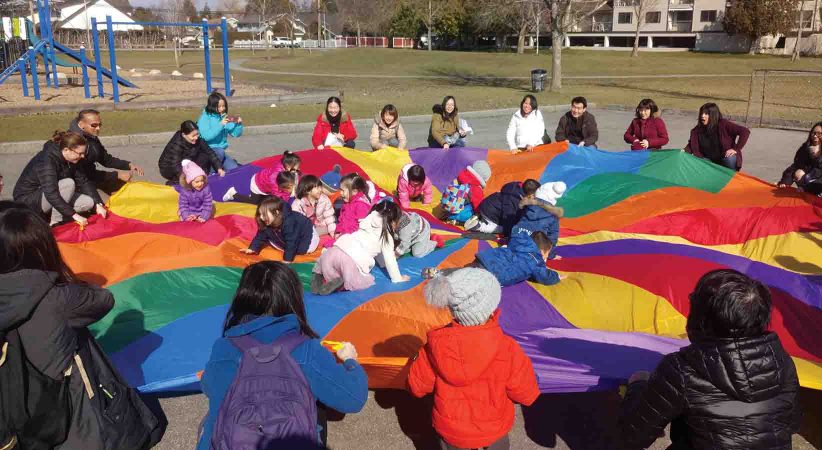IPALS, PALS & ABPALS

Some of our most popular programs are IPALS (Parents as Literacy Supporters in Immigrant Communities), PALS (Parents As Literacy Supporters) and ABPALS (Parents as Literacy Supporters in Aboriginal Communities).
These programs provide new strategies for families to support preschool and kindergarten-aged children’s learning in fun and interactive ways. They focus on learning through play.
Sessions include adult alone time for parents and caregivers to talk with a facilitator and time for adults and children to learn, play and have fun together.
The programs respond to the cultural and linguistic needs of families and aim to provide a positive transition from home and other early care settings to school.
Decoda supports IPALS programs held at 19 sites in 16 BC communities and school districts.
We also train facilitators to run PALS and ABPALS programs offered and coordinated by local school districts or community groups across BC.
The PALS program was developed in 2000 by Fiona Morrison, formerly with Decoda Literacy Solutions, and Dr. Jim Anderson, University of British Columbia.
PALS was adapted for Aboriginal communities (ABPALS) in consultation with Elders and Indigenous community leaders.
PALS and ABPALS programs are held in school district and community settings across BC.
IPALS is a bilingual program developed to help immigrant and refugee families support their preschool- and kindergarten-aged children’s early literacy development, through interactions in English and their first language.
Since 2008, IPALS has helped over 3000 families from 46 countries and 35 different language groups.
IPALS is based on research on the importance of family, community and social learning. The research clearly shows that the more literacy knowledge children have when they start school, the more likely they are to succeed in learning to read and write.
Benefits
- Children develop language and literacy abilities that help them adapt to their community and gain skills to prepare them for school.
- Family members learn to support their children’s learning and literacy.
- Families are welcomed into their neighbourhood schools and build relationships with teachers, administrators and other school personnel.
- Families build social networks with each other.
Decoda trains facilitators to run PALS, IPALS or ABPALS programs in their communities.
A variety of people can be trained, including kindergarten teachers, primary teachers, early childhood educators, family literacy practitioners, cultural workers, support workers, Aboriginal support workers, speech and language pathologists, administrators, parents and community members. In many cases, potential “facilitation teams” participate in training together.
Training is typically a full day and includes history of the program, philosophical overview, a detailed examination of the individual session ideas, time to explore how participants can adapt the program to their individual settings, and potential partnerships within their community. (A “make and take” component is also included in the ABPALS training.)
During training, participants receive a comprehensive facilitator’s guide (the PALS Family Literacy Resource or the ABPALS Family Literacy Resource). This outlines each of the session topics and includes key ideas, session overviews, session materials, take-home materials, take-home book recommendations, suggested centres and centre material recommendations.
Please contact Program Manager Aliza Dhungana at adhungana@decoda.ca for more information if your school district or community organization is interested in a facilitator training session.
IPALS program staff will find the information, forms, logos and resources needed to run an IPALS program on the IPALS Resources page.
This page is password protected.
For more information about IPALS, PALS or ABPALS contact Program Manager Aliza Dhungana at adhungana@decoda.ca.
We acknowledge the support of Immigration, Refugees and Citizenship Canada.
Thank you to private donors who are helping expand the IPALS program to additional sites.
